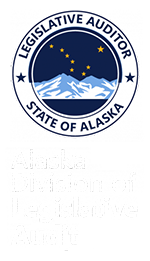Summary: The report offers a number of ways that the department could potentially lower costs in the future. Some of these reductions may be accomplished without cutting services, while others may entail a reduction in services provided by the department. This is distinct from maximizing revenues in that, rather than seeking additional funding to offset general funds, these recommendations find ways that the department could be spending less on a task.
Click here for the table of all recommendations for lowering cost
Key Recommendations for Lowering Costs
- Annual reassessments should be conducted for persons that are receiving personal care assistance services.
(Recommendation 2.5)
DHSS suspended personal care assistance reassessments in response to difficulties the department has had in conducting timely reassessments. Approximately $103 million was paid during FY 14 for personal care assistance. Reassessments can be performed for everyone or individuals can be triaged by acuity or age. It is inefficient to continue to provide services to persons who may now need different or fewer services.
- The department should consider limiting administrative costs during the grants and contracts process.
(Recommendation 3.2)
Percentage guidelines constituting a reasonable administrative cost should be considered. The department currently has no set limits in place to help minimize overall administrative costs in grants and contracts.
- The department should consider the use of an electronic visit verification system with the personal care assistance and waiver programs and for in-home services.
(Recommendation 8.4)
(Recommendation 10.5)
Electronic visit verification systems are one of the technology tools that can minimize unnecessary state expenditures. Under this system personal care assistance providers will electronically verify every time they go to a residence to provide services. Numerous states including Texas, Illinois, and Oklahoma use electronic verification systems. This is estimated to save between $1,000,000 and $2,000,000 annually.
- The department should create financial incentives for the personal care assistance provider agencies to control fraud and abuse.
(Recommendation 10.2)
(Recommendation 10.3)
The current program architecture contains no role for the provider agencies in the control of fraud and abuse. Currently, agencies benefit regardless if the rendering providers provide the services or not. The agencies take their administration fee off the top and pass the rest of the funding along to the rendering providers. The department should issue regulations specifying the responsibility of personal care assistance agencies for monitoring fraud and abuse and build in contractual requirements for provider agencies to control fraud and abuse. Additionally, the department could incentivize provider agencies to monitor fraud and abuse internally by automatically recouping funds from agencies whose rendering providers are not providing appropriate services and rewarding agencies whose providers consistently provide problem-free services. These recommendations should extend to all Medicaid services provided on an in-home service basis including chore and respite whose rendering providers are supervised by agencies.
- Criminal penalties for Medicaid fraud should be increased, and penalties and interests should be assessed when persons are convicted of Medicaid fraud.
(Recommendation 10.6)
(Recommendation 10.7)
Both penalties and interest should be collected in situations where the Medicaid program has been defrauded. The contractor does not offer recommendations as to how penalties should be increased, believing this is a matter best determined by local culture and judicial history. While Alaska Statutes have provisions for recoupment of funds and disbarment from the Medicaid program, increased sanctions would provide State staff, prosecutors, and judiciary more latitude and support in controlling fraud. The State could benefit by having a Medicaid False Claims Act.
- The telehealth pilot program is recommended for expansion.
(Recommendation 8.1)
Senior and Disability Services staff have estimated the travel savings from the first 50 persons assessed through the telehealth pilot program to be approximately $2,000 per person, based on the travel costs to remote locations. Fixed cost for the telehealth program are $20,000 for equipment and $1,000 a month for the telehealth room. An increase in telehealth in reassessments is an effective and efficient use of technology.

